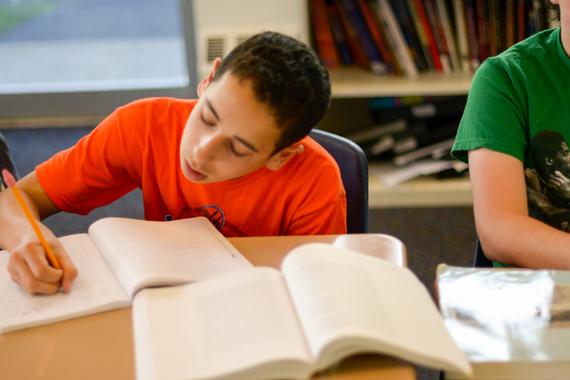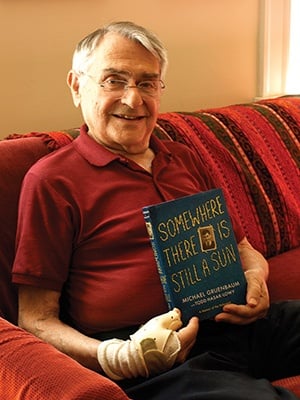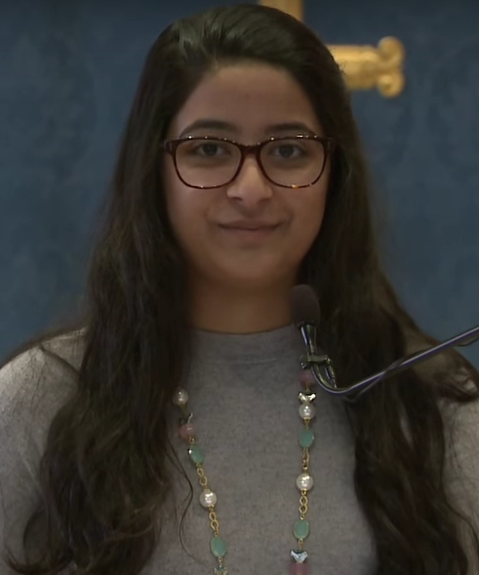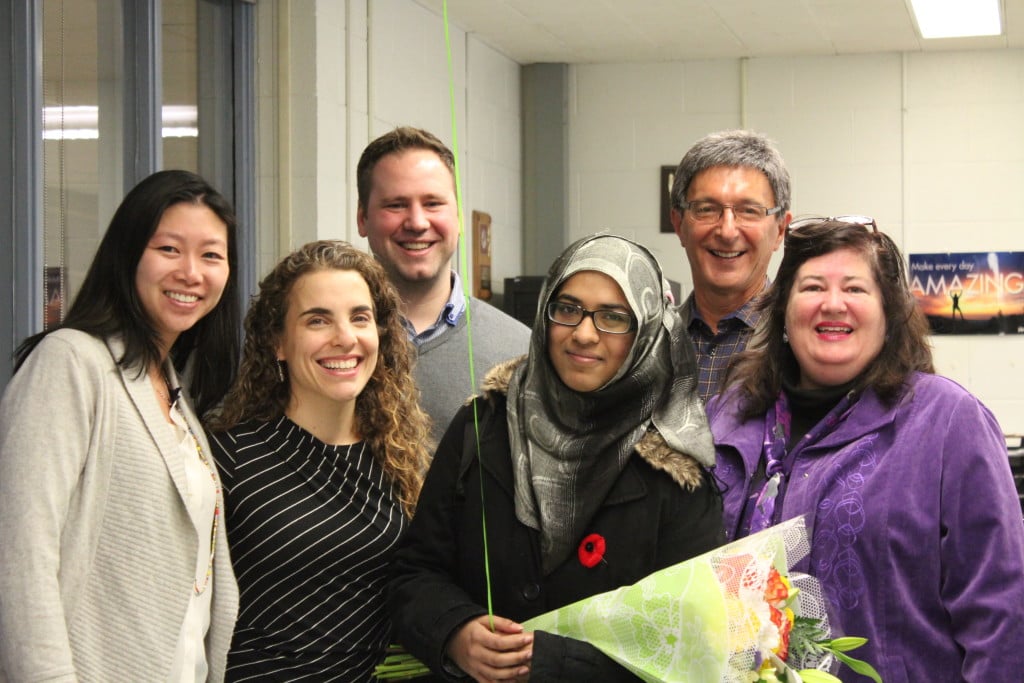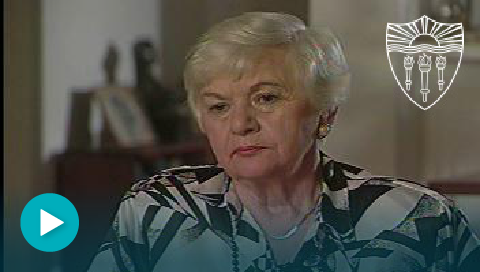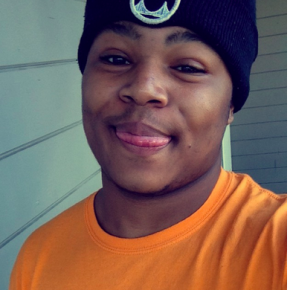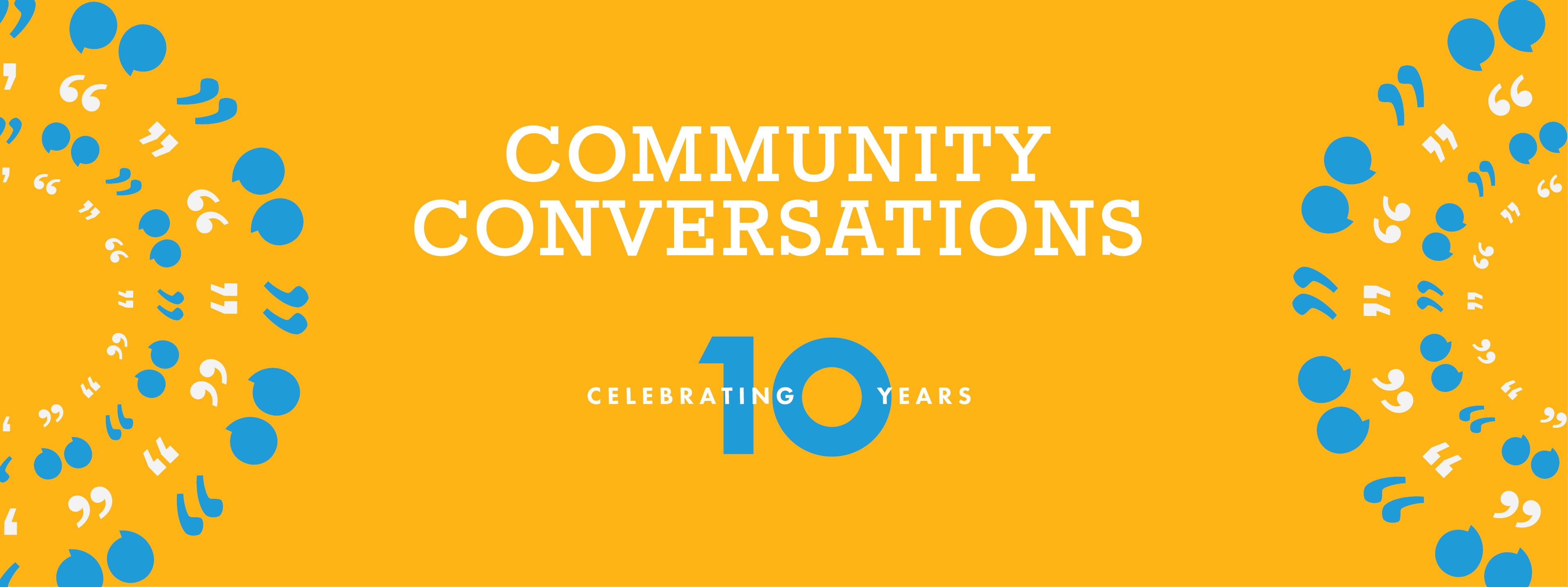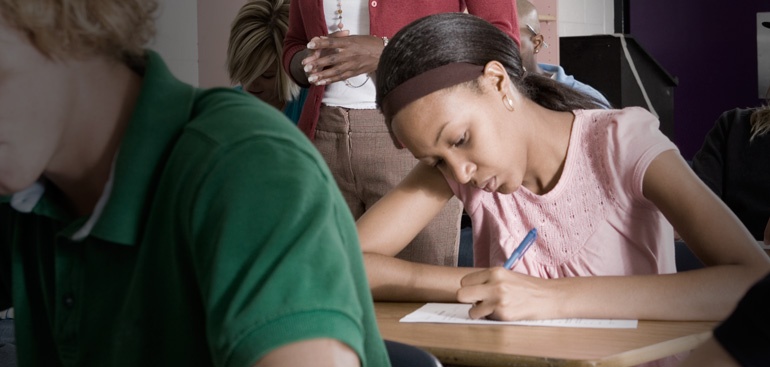This month – National Poetry Month in the U.S. – is a great time to explore just how powerful words can be. When it comes to understanding difficult moments in history, poetry and writing can help students process and express their own thoughts about the world. Explore these three ways you can bring poetry into your classroom using tools from Facing History’s partner, USC Shoah Foundation – The Institute for Visual History and Education.
Stacey Perlman
Recent Posts
Powerful Poetry: Three Activities to Help Students Connect with History
Posted by Stacey Perlman on April 14, 2016
Topics: English Language Arts, Poetry, Writing, Genocide/Collective Violence, Survivor Testimony, ELA, Holocaust Education, IWitness
April is Genocide Awareness and Prevention Month. Throughout the month, we’ll be featuring stories on Facing Today that reflect upon genocide throughout history. Hearing personal stories of survival can be a powerful learning experience. In this post, we’re shining a light on the inspirational stories of two genocide survivors.
Topics: Books, International, Holocaust, Genocide/Collective Violence, History, Holocaust Education
Facing History and Ourselves celebrates upstanders of all kinds: those who stand up to injustice, those who seek to make positive change in the world, and those who spread messages of tolerance, empathy, and knowledge. During Women’s History Month, we are cheering on young women who are doing just that.
Here are three inspiring stories of young women who we have no doubt will be history-makers of the future. How do we know? Read about how they are already upstanders in their communities.
Topics: Books, Students, Religious Tolerance, Memphis, Upstanders, Margot Stern Strom Innovation Grants, Women's History Month
Broadening Teacher and Student Perspectives Through the Nanjing Atrocities
Posted by Stacey Perlman on March 14, 2016
As educators in the U.K., Victoria Mole and her colleagues, Jenna Adcock, and Katie Duce, wanted to teach their students more diverse and broad histories, such as the Nanjing Massacre in 1937. It’s an often-overlooked period of World War II when the Imperial Japanese Army forces brutally murdered hundreds of thousands of people–including both soldiers and civilians in the city of Nanjing, China.
Topics: United Kingdom, Teaching, Twitter, The Nanjing Atrocities
Q&A with Shireen Afzal: Her Advice for Students Entering the 2016 Student Essay Contest
Posted by Stacey Perlman on March 10, 2016
Shireen Afzal is a senior at the Woburn Collegiate Institute in Toronto, Canada. She was one of two finalists in the 2015 Student Essay Contest. In this Q&A, she’ll share her thoughts on the contest, what motivated her, and give advice for students entering this year’s contest inspired by Harper Lee’s To Kill a Mockingbird.
Topics: To Kill a Mockingbird, Contests, Student Voices, Harper Lee
On International Women’s Day, bring the unique voices of women who survived or stood up against some of the worst atrocities of the 20th century into your classroom. Facing History is partnering with USC Shoah Foundation – The Institute for Visual History and Education to help educators access more than 1,500 video testimonies of survivors and witnesses to the Holocaust and other genocides using the Institute’s online learning tool, IWitness.
Topics: Memory, Survivor Testimony, Video, Holocaust Education, The Nanjing Atrocities, Rwanda, International Women's Day, IWitness
Q&A with Arvaughn Williams: Advice for Entering the 2016 Student Essay Contest
Posted by Stacey Perlman on March 1, 2016
Arvaughn Williams is one of two finalists from the Facing History 2015 Student Essay Contest. He entered his spoken word poem as a student at City Arts and Technology High School in San Francisco, California. Arvaughn shares his thoughts about what the contest did for him and his advice for students entering this year’s contest inspired by To Kill a Mockingbird. Stay tuned for another Q&A with Shireen Afzhal, our other finalist from last year, for more encouraging words about entering the 2016 Student Essay Contest.
The deadline for submissions is March 16th at 5:00 p.m. EST. You could win some fantastic prizes for you and your teacher so get ready to write!
Topics: To Kill a Mockingbird, English Language Arts, Contests, Writing, ELA
In 2015 Facing History and Ourselves celebrated ten incredible years of Community Conversations, marking the decade with its first ever event in Boston.
Thanks to The Allstate Foundation’s sponsorship of Community Conversations, Facing History has been able to engage communities in difficult discussions around bigotry and hatred; work we’ve honed for nearly 40 years in classrooms around the globe. These free events spark respectful dialogue about pressing social issues and engage people from all different backgrounds to address racism, prejudice, and antisemitism. And in today’s world the need for unifying, understanding, and healing has never been greater.
Topics: Boston, Community, Community Conversations, Bryan Stevenson, The Allstate Foundation
Join the Conversation: Enter the 2016 Student Essay Contest!
Posted by Stacey Perlman on February 3, 2016
The foundation of a good story is a cast of characters that shape our thoughts about the world. That’s certainly the case for Scout Finch in Harper Lee’s beloved novel, To Kill A Mockingbird. As a young white girl, she is forced to question her community’s spoken and unspoken rules when her father defends a black man falsely accused of a crime in 1930s Alabama. She and her brother, Jem, struggle to define their identities in relationship to the values of their small, segregated Southern town.
Topics: To Kill a Mockingbird, Contests, Student Voices, ELA
Why Online Learning Matters: A Q&A with Dr. Sybil Hampton
Posted by Stacey Perlman on January 20, 2016
For the past three years, Dr. Sybil Hampton has been featured as a guest speaker for Facing History and Ourselves’ online course, “Choices in Little Rock.” Her experience as one of the first African American students to graduate from Central High School in Little Rock, Arkansas in 1962 makes her a witness to history. She shares her reflections on why she chooses to participate in Facing History’s online professional development courses.
Register today! Our online courses start on February 4.
Topics: Civil Rights Movement, Webinar, Professional Development, Civil Rights, Online Learning

